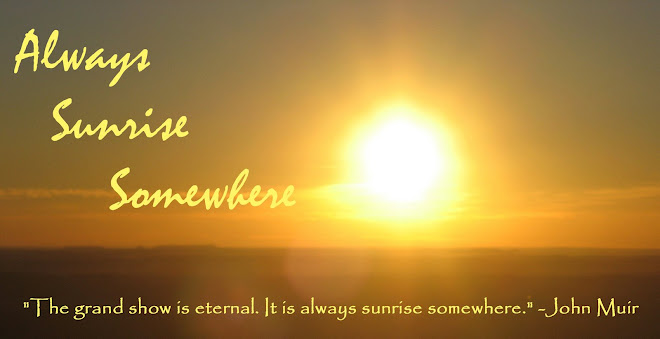I have been meaning to finish telling the story about the short film, "We Are All Rwandans", that I saw on Sunday (see Monday's post). The director of the film, I've since found out, is the great-grand-daughter of one of the first missionaries in Rwanda. She spoke briefly before the film began on Sunday, relating how there may be financial backing to create a full-length film from these initial efforts (which resulted in a 25-minute film). Coming soon to a theater near you! (hopefully)
The film recounted the history of a social studies teacher at a boarding school for secondary students in Kibuye, in 1997. Kibuye is in the west of Rwanda, and there were exiled Rwandan militants who at this time were coming back into Rwanda and trying to stir up further trouble, especially in that region. The film begins with the narration of the school teacher, talking about what he taught the teenagers (of mixed ethnicity): that love is stronger than hatred, and unity would conquer chaos. He taught the students that each of them had a high calling: to value every human being as someone who was created in God's image. He taught them that there was something more important than ethnicity, and that was humanity.
The first part of the film briefly chronicles his classroom interaction with students, and their response to what he taught. The teens wanted to believe in peace, but still struggled with trauma and pain from the recent war. They wrestled with, but saw the importance of, forgiveness and trust.
The second part of the film shows the unfolding of a militia plan to invade the school and kill all those of Tutsi ethnicity. The soldiers successfully enter the school compound, where students are attending night classes, and demand that the students separate according to ethnicity. The students, who are terrified, nonetheless refuse, repeatedly. When one Hutu student is singled out and pressed to identify her Tutsi peers, she pauses, and then declares softly, "We are all Rwandans." It is the last thing she says before she is gunned down, along with her classmates. The film ends with a tribute to the courage of the students who confronted evil by standing in unity -- even though it cost them their lives.
We talk a lot in the public health arena about "cost benefit analysis." This means simply, "are we maximizing the use of our money?" Sometimes hard decisions have to be made, because the decision to spend money to benefit 1000 children may mean that 100 children elsewhere lose out. I bring this up because, from the point of view of "cost benefit analysis," the student in the story above could have saved half her classmates (not to mention herself) by identifying the Tutsis in the room. But she didn't. And neither did any of her other Hutu classmates.
I am pausing for a moment, thinking.
Saving one life is a courageous act. Saving many lives is heroic. But maybe at times there's a higher calling than preventing one more death.
At the start of the film, the social studies teacher taught his class that they didn't have to fear anybody, least of all those who were killers. He didn't know about the coming attacks on the school, but he knew to teach his students not to fear men, even evil men. And I only know of one way to escape that kind of fear, because Jesus taught it to His students too: fear (revere) God....God, Who knows all about self-sacrifice, even to the point of death.
------------------
I Jn. 3:16 By this we know His love, that He laid down His life for us. And we also ought to lay down our lives for our brothers and sisters.
Thursday, March 27, 2008
Subscribe to:
Post Comments (Atom)




1 comment:
ooo. this post gave me chill bumps! thank you for sharing. it sounds like a very powerful film.
Post a Comment